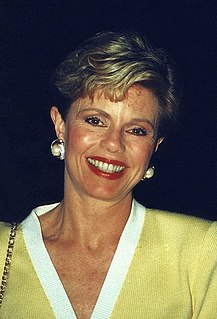A Quote by George Carlin
My father? My father left when I was quite young. Well actually, he was asked to leave. He had trouble metabolizing alcohol.
Related Quotes
My family background really only consists of my mother. She was a widow. My father died quite young; he must have been thirty-one. Then there was my twin brother and my sister. We had two aunts as well, my father's sisters. But the immediate family consisted of my mother, my brother, my sister, and me.
After the fire, when I'd tried to express my gratitude for their kindness to our customers, they'd been awkward, uncomfortable. My father had had to explain to me that giving thanks is not a common practice in India. 'Then how do you know if people appreciated what you did?' I'd asked. 'Do you really need to know?' my father had asked back.
When Christ was about to leave the world, He made His will. His soul He committed to His father; His body He bequeathed to Joseph to be decently interred; His clothes fell to the soldiers; His mother He left to the care of John; but what should He leave to His poor disciples that had left all for Him? Silver and gold He had none; but He left them that which was infinitely better, His peace.
I was born in Edinburgh, in Scotland, a few days after the end of the Second World War. Both my parents had left school at a very young age, unwillingly in my father's case. Yet both had deep effects on my education, my father influencing me toward measurement and mathematics, and my mother toward writing and history.
I spoke to my father - my father's from Pakistan and he's also a lawyer - I said to him, "Well what does the Shari'a say?" And he said, "Well, of course it doesn't justify suicide bombs," but he didn't seem to know where the Shari'a came from or what it was all about. The more I asked people in my family as well as friends, the more I realized that there seemed to be widespread ignorance in the Muslim community. And that's something which I actually found to be the case over the next two and a half, three years I spent writing the book.


































